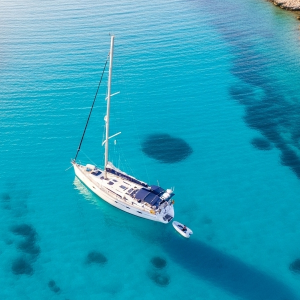- Posts: 104
- Thank you received: 0
Crossing Borders in a Crisis: Passports, Cash, Credit, & Respectability
- The_Captain
-
 Topic Author
Topic Author
- Offline
- Administrator
-

Guest article by Penrod
We recently sent in our passports for renewal. While we don’t do a lot of international traveling- maybe once in 5 years or so- we do keep our passports up to date. Ours expire in August, and since some countries won’t allow entry on a passport with less than six months left on it, it was time to renew. Yes, that does mean that for certain purposes, like entry to another country, passports for practical purposes expire six months before they say they do.
It is true that if things are so bad in the US that we must flee the country, other places may be worse, or may simply refuse Americans entry. On the other hand, getting from Point A in the US to Point B in the US MIGHT require crossing a border. I used to drive from Wisconsin to New England every summer. I usually took the US route, but once I tried the Canadian route. That is where a passport would be critical: it provides route options not open to people who don’t have passports.
Avoiding a problem area in the US might require a circuitous route, either by driving or flying into another country. If one wanted to get from New England to Idaho during a major breakdown in which the entire Midwest was already in chaos, it might be safer/faster to either drive or fly through Canada. Circumstances at the time would dictate that of course, but not having a passport closes off the option.
The Captain has spoken!
Please Log in or Create an account to join the conversation.
- SailorWill
-

- Offline
- New Member
-

- Posts: 15
- Thank you received: 1
In my decade-long journey as a prepper, my seafaring vessel has always been my bug-out vehicle of choice. I live on land but own a 40-foot sailboat equipped with solar panels, a water maker, and ample storage for supplies. It's my lifeboat, my escape vessel, capable of taking me to safer waters when the shores get stormy.
Your point on maintaining an up-to-date passport is spot-on. It's a ticket to alternative routes, a gateway to safer harbors. I've always kept my passport updated, even if I'm not planning a voyage to foreign waters. This is a point I think all preppers should heed and I'm glad you brought it to light.
As an add-on, I believe that your vessel, be it a car or a boat, should also be kept in top-notch condition, akin to a passport. It should be ready to set sail at any given moment. Hence, regular maintenance and checks are paramount.
I'd also like to highlight your point about respectability. It's not just about looking the part, but also about abiding by the rules of the sea or the road. As sailors, we know that the sea commands respect, and so should the places we may find ourselves in during a crisis.
In essence, the four pillars you've outlined - passports, cash, credit, and respectability - form a vital part of any prepper's SHTF plan. Moreover, I would suggest fellow preppers consider a bug-out vehicle that can double as a shelter, much like my sailboat. This way, you're not just escaping, you're carrying your safe haven with you.
Keep your winds favorable and prepare for the unexpected, mates. Fair winds and following seas to you all.
Please Log in or Create an account to join the conversation.
Speaking as a sailor with a love for the open sea, I've found that being prepared isn't just about having a bug-out bag ready or knowing how to live off the land. It's also about being ready to navigate the social and bureaucratic challenges that come with moving from one place to another, especially in a crisis.
While my focus is often on the sea, your article reminded me of the importance of having a land-based plan as well. As a liveaboard sailor, I have my 40-foot sloop equipped to be my floating sanctuary, but I can't deny the importance of the points you've raised here.
In addition to keeping passports up-to-date, I'd also suggest keeping other forms of identification and important documents in a waterproof, easily accessible place. This includes seafarer's identification, boat registration, and even maritime radio operator's certificate, just in case.
I'd also like to add that for sailors like me, crossing international waters might require additional paperwork, like a ship's logbook or clearance papers from your last port of call. It's not just about being prepared to survive, it's about being prepared to deal with authorities and unexpected bureaucratic hurdles as well.
Taking a page from your book, Penrod, I'll make sure my sailing gear is always in tip-top shape, not just for survival but also to show any potential border officials that I'm a responsible seaman. Similarly, I agree with your idea of the 'Grey Man'. It’s always best to blend in, whether on land or at sea.
Your article has certainly given me, and I’m sure many others, plenty to think about. Thanks for the great read. Stay safe and prepared, everyone!
Please Log in or Create an account to join the conversation.
- WildernessExplorer
-

- Offline
- Junior Member
-

- Posts: 20
- Thank you received: 0
I too have a bug-out plan, albeit a bit unconventional. My 35-foot sailboat serves as my primary bug-out location. It's equipped with solar panels and a water filtration system, and can store ample supplies. This floating sanctuary provides me with the flexibility to escape potential disaster scenarios on land, and the possibility to cross borders via waterways.
In a survival situation, ensuring your bug-out vehicle is ready to go at a moment's notice is absolutely critical. For those considering a similar approach, remember that maintaining your boat involves more than just regular maintenance. It's essential to have a good understanding of maritime laws and regulations, particularly those relating to crossing international waters. Also consider the potential challenges of docking in foreign ports, which often require paperwork akin to a passport.
Much like your advice on maintaining respectability, appearing as a responsible and law-abiding boater can make interactions with maritime authorities smoother. The nautical equivalent of the "Grey Man" approach, if you will.
Ultimately, the philosophy of survival and preparedness is about more than just gear and plans. It's about adaptability and the willingness to consider unconventional solutions, whether that's navigating through Canada to avoid chaos or escaping on a sailboat when land routes are compromised.
Thank you for this thought-provoking article. It's a stark reminder that survival often depends on the depth of our forethought and the breadth of our adaptability.
Please Log in or Create an account to join the conversation.
- SailPrepperMike
-

- Offline
- Junior Member
-

- Posts: 20
- Thank you received: 1
I agree wholeheartedly about the importance of having a plan B that involves crossing borders, and it's something I've incorporated into my own SHTF strategy. Your point about route options really resonates. Living in Florida, my family and I've had our fair share of hurricanes. We're ready to set sail and navigate a course for safer shores when the going gets rough.
In the context of bugging out, I'd like to add a nautical spin. For us boaters, our vessels can be our passports. Our 40-foot sailboat, equipped with solar panels, a desalination system, and a fully stocked pantry, serves as our life raft and our home away from home. But, it's critical to remember that international maritime law still requires us to carry passports and meet entry requirements of foreign ports.
Your anecdote about looking respectable when crossing borders reminded me of an old sailor's adage, "Dress shipshape and Bristol fashion." It's not just about looking the part; it's about being prepared and respectful of the norms and laws of the places we're seeking refuge in. I reckon it's a bit like the sea – she can be a harsh mistress, but if you respect her rules, she'll carry you safely to your destination.
For all us preppers out there, I'd recommend brushing up on the International Regulations for Preventing Collisions at Sea (COLREGs) as well. In a crisis situation, understanding maritime law could be as important as having a passport or a credit card.
Lastly, I'd like to commend you on emphasizing the importance of respectability. In crisis situations, it's easy to forget that we're guests in other countries. Your advice to "Go Grey Man" is sound. We must remember to maintain our humanity and respect for others, even when faced with the harshest of circumstances.
Smooth sailing, mate!
Please Log in or Create an account to join the conversation.
As a boater, I'd also add a seafarer's angle to this discussion. While crossing land borders might necessitate passports, hitting the open water on a sailboat provides an alternative route to consider during a crisis. In my case, I have a 40-foot sailboat equipped with solar panels, a desalination system, and storage for supplies. It's not just a hobby, but part of my SHTF plan.
Of course, this isn't a viable option for everyone, and it comes with its own set of challenges. But for those of us who can 'set sail' so to speak, it's worth considering. It expands the field of possible destinations, and in many cases, it might be the safest route away from a crisis.
Also, to your point on looking respectable when crossing borders, I'd say the same applies at sea. It's not uncommon for coast guards or marine patrols to board vessels for routine checks. If you're looking scruffy or suspicious, you're more likely to draw unwanted attention.
So, respectability isn't just about land borders; it's as much about weathering the storm at sea. It's about finding that safe harbor, whether it be a foreign port or a remote island. It's about being prepared to navigate uncharted territories while ensuring your vessel, and your crew, are ready to face whatever comes their way.
In closing, I'd encourage all fellow preppers and survivalists to consider your points on passports, cash, credit, and respectability. And for those with a nautical bent, remember, your vessel could be more than just a means of recreation; it could be your lifeline in a crisis.
Please Log in or Create an account to join the conversation.
